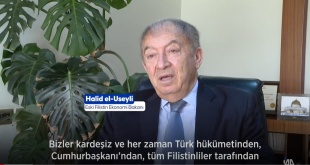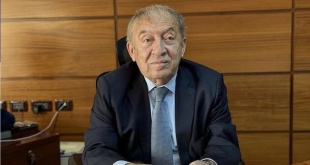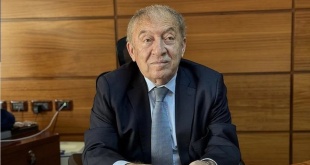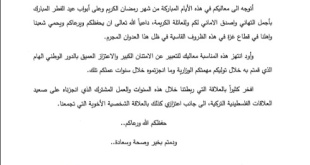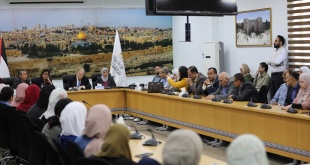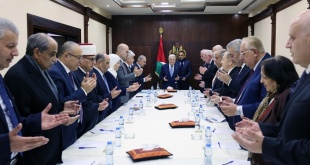Tourism is one of the most dynamic and fastest-growing economic sectors in the world. As it requires a variety of services, it promotes local economic development by contributing to domestic spending and bringing in foreign currencies in addition to creating both direct and indirect employment opportunities, especially for the most vulnerable groups such as women and youth. In 2019, the comprehensive tourism industry accounted for 10.3 percent of total global employment.
Since the tourism sector depends on external markets and global demand, it was among the sectors most affected by the outbreak of the COVID-19 pandemic. Hotels and restaurants have been forced to close down and demand has all but vanished, as tourism-related activities are optional and considered a luxury. According to the UN World Tourism Organization, COVID-19 travel restrictions are in place in all countries worldwide, and 156 governments have completely closed their borders to international tourism as of mid-July 2020. Based on an International Labor Organization report, the COVID-19 restrictions have resulted in the loss of 305 million jobs, many of them in the tourism sector, and caused a contraction of the international tourism economy by between 45 and 70 percent. Given these conditions, tourism-related activities are likely to be among the last activities to re-emerge.

The ongoing threat, caused by the pandemic that has paralyzed the movement of the entire world, has added to the already existing threat we face in Palestine. Palestinians suffer from the matrix of restrictions forced upon them by the Israeli occupation, which imposes geopolitical changes and causes distortions that particularly affect the tourism sector. Many tourist sites are under Israeli control, preventing Palestinians from investing in them. In addition, Israel controls all borders and crossings points where it imposes travel restrictions, thus limiting our ability to expand our bilateral, regional, and multilateral relations. Accordingly, our economy continually loses a significant source of income. A report issued by the United Nations found that the fiscal cost of the Israeli occupation on the Palestinian people from the year 2000 to 2017 is estimated at US$47.7 billion, three times the size of the Palestinian economy in 2017.
Through the measures Israel imposes as the occupying power, it persistently violates international and bilateral agreements, including the Paris Protocol, in efforts to benefit and profit from its occupation. For example, it is estimated that tourism to the Dead Sea has forgone revenues of US$56.11 million in hotel accommodations only. This is a very conservative estimate of the entire loss in this area alone, given that tourism is not limited to the hotel industry. Moreover, the World Bank has provided partial estimates of the occupation costs in Area C (61 percent of the West Bank), citing 23 percent of the GDP (US$2.9 billion in 2015) in direct costs, plus 12 percent of GDP (US$1.5 billion in 2015) in indirect costs, adding up to a total cost of 35 percent of the GDP.
Tourist companies tend to be small to medium enterprises. This makes them sensitive and vulnerable to economic shocks, as they are unlikely to be able to bear the costs and burdens triggered by these shocks.
Despite and during the longest occupation in the modern era, the Palestinian private sector has been resilient and has managed to prove its capability to recover through creative efforts, turning challenges and threats into opportunities for growth and development. Despite the spreading pandemic, private-sector firms have succeeded in achieving successes by transforming their business models into more feasible enterprises in order to fulfill emerging market need in sectors such as the textile and chemical industries. We expect the tourism sector to take a similar approach and are determined to recover and revive it.
Beyond holding importance as a business sector, the Palestinian tourism sector reacts and interacts with its people and their activities. In Palestine, during the pandemic and despite the huge damage it had incurred, the tourism sector was the first to cooperate with the health sector in providing support to governmental efforts to contain the pandemic. Hotels that had been closed entirely have been transformed into places for isolation and quarantine, providing medical care to accommodate the growing demand for hospital treatment. Patients were provided with meals and continuous service throughout the quarantine period.

Therefore, the Ministry of National Economy (MoNE) has moved quickly to support the Palestinian private sector in all economic enterprises, including tourism. A rapid response plan for the recovery of the tourism sector has been developed in cooperation with the United Nations Industrial Development Organization (UNIDO), which calls for a financial stimulus package to provide liquidity to small and medium enterprises (SMEs) and facilitate technical capacity building to support the business transformation through digitization.
At the enterprise level, the ministry has called on the private sector and employers to adhere to preventive health and safety measures in order to confront the pandemic to ensure the continued work within the facilities. Moreover, the MoNE and the Ministry of Labor (MoL) have called on the private sector to take measures to protect workers, including those working the tourism sector, who are laid off due to the crisis, in efforts to ensure that workers receive 50 percent of their monthly wages. Furthermore, the MoNE and MoL have asked employers to preserve laborers. A cabinet decree was issued to provide tax incentives for employers, projects, and enterprises that have preserved labor.
The ongoing violations of the human and economic rights of the Palestinian people carried out by the Israeli occupation regime exacerbate the damage caused by the pandemic and threaten to make the revival of the tourism sector a “mission impossible.”
At the national level, an innovative private sector development project (IPSD) is currently being implemented, funded by the World Bank. It supports entrepreneurs and start-ups as well as innovation and creativity for business growth and networking. The IPSD is an opportunity for the tourism industry to promote the structural transformation of tourism activities, in order to build a stronger, more sustainable, and resilient tourism economy. The project supports innovative ideas and technological solutions that have become a must to deal with the health and social distancing requirements, as coping with the pandemic requires thinking outside the box and inventing new forms of businesses; for example, adopting digital tools and creating digital solutions that aim to target local or export markets – e.g., by creating “live remote” tourism and/or tourism experiences – are important means to resume sector activities with a new business form.
In addition, a special program of incentive financial packages is being developed with the support of the European Union. This program will target existing and new industries in industrial zones, including the Bethlehem industrial area that was severely damaged during the lockdown of Bethlehem city, with the tourism-related industries being the most affected. The program is considered a motivational program to encourage industries, including tourism and crafts, to transfer to industrial areas. It will facilitate bringing the market and businesses back by supporting operational and capital expenditures. Moreover, the tourism industries would benefit not only from the facilities provided in the industrial zone, including infrastructure, but also from the tax incentives that aim to encourage investment.
The MoNE has also worked to develop the tourism infrastructure by developing the regulatory framework to encourage tourism investment through a tax incentive package for businesses in the tourism sector in accordance with the Law on the Promotion of Investment. Currently, the Companies Law is being drafted and reviewed. This law will facilitate online registration and enhance the business enabling environment for local and foreign investors.
In addition, a presidential decree that waived the registration fee for companies was issued during the pandemic in order to encourage start-ups and minor investors to register before the end of 2020. Another presidential decree was issued to exempt companies and/or individuals from license renewal fees to support the tourism industries for the year 2020.
Indeed, this pandemic has challenged us. It has tested our capability to cope and act in solidarity with each other as the spread of COVID-19 threatens not only the health system but also our economy and our very existence.
The MoNE continues to support Jerusalem, the capital of the Palestinian state, based on its religious, cultural, and political status, in addition to its importance as a touristic destination. We have recently started, in cooperation with the Standing Committee for Economic and Commercial Cooperation of the Organization of the Islamic Cooperation (COMCEC) and the Ministry of Tourism, the implementation of the first stage to support the tourism sector in Jerusalem. This includes implementing various activities such as assessing the infrastructure of the tourism sector in Jerusalem; supporting the institutional capacities of the Jerusalem Council for Tourism and Heritage (Jerusalem Tourism Association); studying the export market and finding new markets to promote Jerusalem as a touristic destination; providing training and capacity building for workers in the tourism sector; and producing various materials to promote Jerusalem internationally as a touristic destination.
At the regional and international levels, the MoNE continues to promote bilateral, regional, and multilateral relations through joint committees with various countries where the tourism sector is one main pillar of the negotiations and discussions on ways of cooperation and development. In the past, as a result of the Palestinian-Russian Economic Cooperation Committee and through Palestinian-Chinese cooperation, for example, there was an increase in the number of tourists coming to Palestine. The MoNE intends to build on and expand such distinguished relations. Furthermore, joint work programs in the tourism sector clearly have shown remarkable outcome, particularly from the distinguished work of the Palestinian Jordanian Committee. It is hoped that similar cooperation will bring positive results in the future. Our efforts relentlessly continue on the regional and international levels. The above-mentioned steps are being added to what is currently in place while the ministry continues to promote and support the national products by developing its standard and quality to increase the local and international market share, including with tourism products.
The Palestinian Export Council, headed by the minister of national economy, has developed a monitoring mechanism to ensure fair competition between national and imported products in the handicraft industries. Moreover, a special logo for branding Palestine has been developed to enhance the competitiveness of Palestinian products. This will contribute to changing the prevailing stereotype and increase the desire to visit and invest in Palestine.
We are keen to support the tourism sector and touristic products through our ongoing efforts at this level. For now, negotiations are ongoing with the donor community to support SMEs that have been affected by the pandemic, providing liquidity through soft loans, subsidizing the interest rate, and linking the loan with providing technical support to facilitate their business transformation, digitization, and access to export markets.
The MoNE has inaugurated, together with Japan and UNIDO, a one-of-a-kind creative fashion design center. The center will develop the value chain of clothing and textiles. It aims to link the Palestinian identity with new modernized products for the local and international markets. In cooperation with UNIDO, support has already been provided to the handicraft industries in Bethlehem and Jerusalem through a very successful series of creative clusters.
The Ministry of National Economy in cooperation with the Ministry of Tourism and Antiquities is determined to turn this crisis into an opportunity to rethink our approach to the tourism of the future and seek to promote tourism development in many aspects at the national and international levels.
In the same context, a heritage center funded by the government of India is under construction. It is a specialized center that is developing the design and marketing capabilities of the target groups (women and youth), especially in crafts, handicrafts, and heritage industries. The center will be equipped to build capacities and develop products to enter the local, regional, and international markets. We believe that creativity and innovation will bring success and foster the recovery and revival of the tourism sector.
The MoNE’s efforts are an integral part of the efforts of the Palestinian government, which has put in place policies to ensure continued market operations in line with the health requirements and implemented urgent and immediate measures to mobilize funds to support the most affected sectors, especially SMEs. These measures include the launching of a program to provide financing, with a value of US$300 million, provided by the Palestinian Monetary Authority, in addition to a soft loan program that is implemented in cooperation with the Islamic Development Bank, with a value of US$25 million, and an initiative of the Palestinian Investment Fund to issue an emergency support program with a value of US$25 million.
Together, we will continue to mobilize support in order to implement effective policy responses that help maintain the sector and ensure that businesses remain running along the entire supply chain.
 Khaled Osaily. خالد العسيلي رئيس بلدية الخيل السابق خالد العسيلي
Khaled Osaily. خالد العسيلي رئيس بلدية الخيل السابق خالد العسيلي

